Vauxhall Corsa vs Renault Captur - Differences and prices compared
Compare performance (156 HP vs 158 HP), boot space and price (19600 £ vs 21100 £ ) at a glance. Find out which car is the better choice for you – Vauxhall Corsa or Renault Captur?
Costs and Efficiency:
Looking at overall running costs, both models reveal some interesting differences in everyday economy.
Vauxhall Corsa has a barely noticeable advantage in terms of price – it starts at 19600 £ , while the Renault Captur costs 21100 £ . That’s a price difference of around 1508 £.
Fuel consumption also shows a difference: Renault Captur manages with 4.40 L and is therefore slight more efficient than the Vauxhall Corsa with 4.60 L. The difference is about 0.20 L per 100 km.
Engine and Performance:
Under the bonnet, it becomes clear which model is tuned for sportiness and which one takes the lead when you hit the accelerator.
When it comes to engine power, the Renault Captur has a minimal edge – offering 158 HP compared to 156 HP. That’s roughly 2 HP more horsepower.
In acceleration from 0 to 100 km/h, the Vauxhall Corsa is a bit quicker – completing the sprint in 7.90 s, while the Renault Captur takes 8.90 s. That’s about 1 s faster.
In terms of top speed, the Vauxhall Corsa performs somewhat better – reaching 210 km/h, while the Renault Captur tops out at 180 km/h. The difference is around 30 km/h.
There’s also a difference in torque: Renault Captur pulls slight stronger with 265 Nm compared to 260 Nm. That’s about 5 Nm difference.
Space and Everyday Use:
Beyond pure performance, interior space and usability matter most in daily life. This is where you see which car is more practical and versatile.
Both vehicles offer seating for 5 people.
In curb weight, Vauxhall Corsa is to a small extent lighter – 1175 kg compared to 1323 kg. The difference is around 148 kg.
In terms of boot space, the Renault Captur offers distinct more room – 422 L compared to 309 L. That’s a difference of about 113 L.
In maximum load capacity, the Renault Captur performs noticeable better – up to 1363 L, which is about 321 L more than the Vauxhall Corsa.
When it comes to payload, Renault Captur barely noticeable takes the win – 453 kg compared to 445 kg. That’s a difference of about 8 kg.
Who wins the race in the data check?
The Vauxhall Corsa shows small but noticeable advantages in the objective data comparison.
This result only shows which model scores more points on paper – not which of the two cars feels right for you.
Costs and Consumption
View detailed analysis
Engine and Performance
View detailed analysis
Dimensions and Body
View detailed analysis
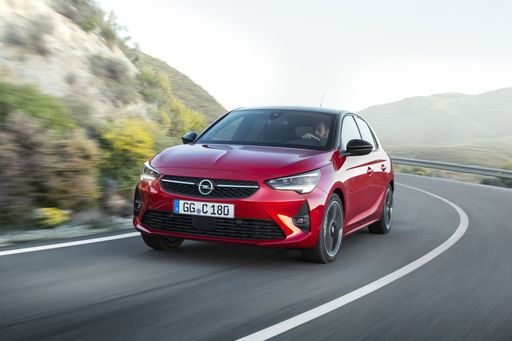
Vauxhall Corsa
Vauxhall Corsa
The Opel Corsa is a tidy little package that blends cheeky styling with sensible practicality, perfect for city streets and weekend escapes alike. It’s easy to live with, economical to run and just lively enough to make daily driving a bit more fun.
details
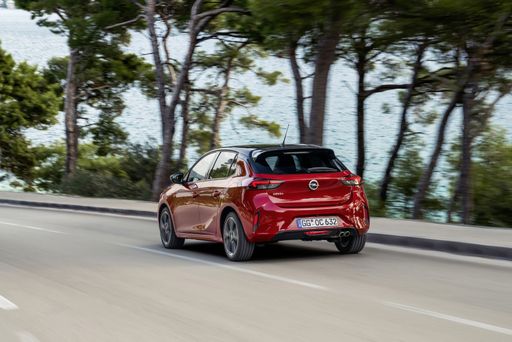
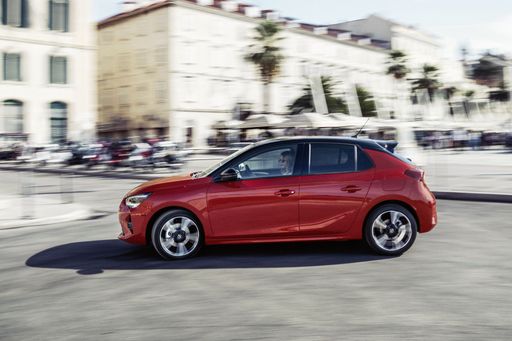
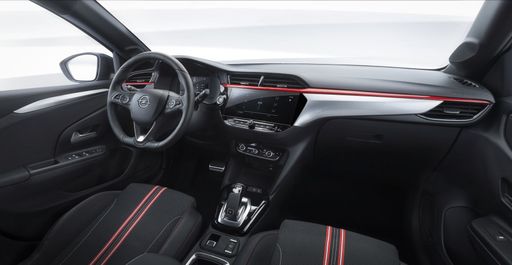
Renault Captur
The Renault Captur is a cheeky little crossover that pairs city-friendly agility with a roomy, well-thought-out cabin and enough style to turn heads at the lights. It’s a sensible choice for buyers who want practical versatility and a dash of personality on their daily drives, without taking itself too seriously.
details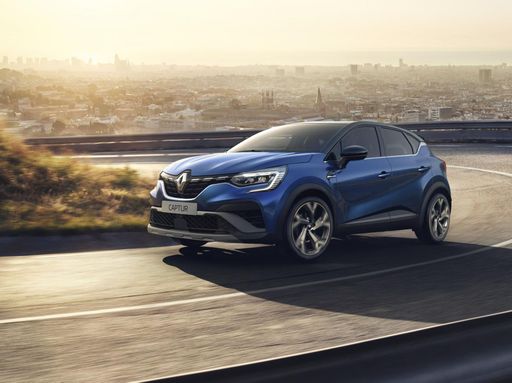
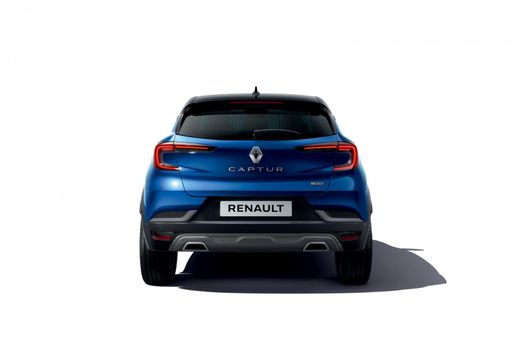
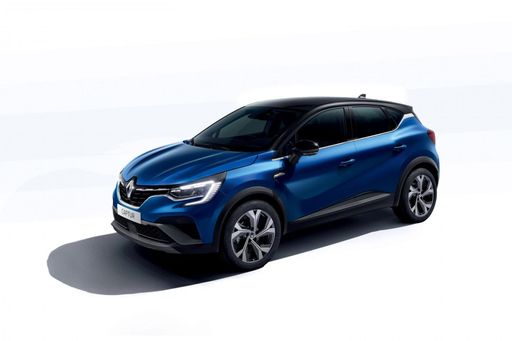
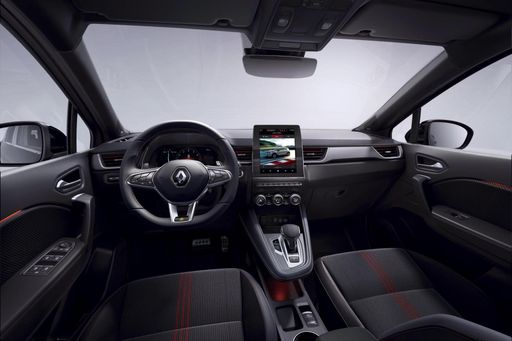
Costs and Consumption |
|
|---|---|
|
Price
19600 - 30600 £
|
Price
21100 - 28400 £
|
|
Consumption L/100km
4.6 - 5.2 L
|
Consumption L/100km
4.4 - 6 L
|
|
Consumption kWh/100km
14.4 - 16.2 kWh
|
Consumption kWh/100km
-
|
|
Electric Range
347 - 424 km
|
Electric Range
-
|
|
Battery Capacity
46 - 51 kWh
|
Battery Capacity
-
|
|
co2
0 - 116 g/km
|
co2
100 - 137 g/km
|
|
Fuel tank capacity
44 L
|
Fuel tank capacity
48 L
|
Dimensions and Body |
|
|---|---|
|
Body Type
Hatchback
|
Body Type
SUV
|
|
Seats
5
|
Seats
5
|
|
Doors
5
|
Doors
5
|
|
Curb weight
1175 - 1544 kg
|
Curb weight
1323 - 1441 kg
|
|
Trunk capacity
267 - 309 L
|
Trunk capacity
326 - 422 L
|
|
Length
4061 mm
|
Length
4239 mm
|
|
Width
1765 mm
|
Width
1797 mm
|
|
Height
1435 mm
|
Height
1575 mm
|
|
Max trunk capacity
1004 - 1042 L
|
Max trunk capacity
1363 L
|
|
Payload
376 - 445 kg
|
Payload
447 - 453 kg
|
Engine and Performance |
|
|---|---|
|
Engine Type
Electric, Petrol MHEV, Petrol
|
Engine Type
Full Hybrid, Petrol, Petrol MHEV
|
|
Transmission
Automatic, Manuel
|
Transmission
Automatic, Manuel
|
|
Transmission Detail
Reduction Gearbox, Dual-Clutch Automatic, Manual Gearbox
|
Transmission Detail
Automatic Gearbox, Manual Gearbox, Dual-Clutch Automatic
|
|
Drive Type
Front-Wheel Drive
|
Drive Type
Front-Wheel Drive
|
|
Power HP
100 - 156 HP
|
Power HP
115 - 158 HP
|
|
Acceleration 0-100km/h
7.9 - 9.9 s
|
Acceleration 0-100km/h
8.9 - 12.3 s
|
|
Max Speed
150 - 210 km/h
|
Max Speed
180 km/h
|
|
Torque
205 - 260 Nm
|
Torque
160 - 265 Nm
|
|
Number of Cylinders
3
|
Number of Cylinders
3 - 4
|
|
Power kW
74 - 115 kW
|
Power kW
84 - 116 kW
|
|
Engine capacity
1199 cm3
|
Engine capacity
1199 - 1789 cm3
|
General |
|
|---|---|
|
Model Year
2024 - 2025
|
Model Year
2025
|
|
CO2 Efficiency Class
A, C, D
|
CO2 Efficiency Class
C, D, E
|
|
Brand
Vauxhall
|
Brand
Renault
|
What drive types are available for the Vauxhall Corsa?
The Vauxhall Corsa is offered with Front-Wheel Drive.




